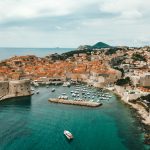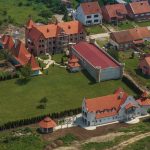May 5, 2020 — Zadar waits. While Croatia’s Tourism Ministry and industry groups around the country try to salvage a summer season wrecked by the COVID-19 pandemic, Zadar waits.
“It is clear that health is an absolute priority. We all hope the stabilization of the epidemiological situation and the opening of markets and economy will facilitate the implementation of the summer part of this year’s tourist season,” Zadar Tourist Board Director Mario Paleka told Zadarski List.
“Although it is thankless to predict anything because we live and function in unprecedented experimental conditions, there are indications that a more free flow of people and goods across borders can occur, which, with competitive measures and business conditions for tourism, hospitality, and other complementary businesses, is sure to result in some tourist traffic this summer.”
Paleka, a kinesiologist and the town’s former Sports Director, says the Tourist Board is coordinating with all interested parties to devise some plan.
In late February, Paleka suggested the coronavirus may only affect the shoulder season. His colleagues in Dubrovnik said the same.
But since then, the “Pearl of the Adriatic” launched an ad campaign and asked the government to grant it special status to allow for charter flights and private jets. Whether it will pass doesn’t matter much — its tourism machine continues to hum along and spitball ideas, staying visible while Minister Gari Cappelli seeks a way out of the COVID-19 mess.
Zadar, meanwhile, waits.
The coastal town perpetually rests atop Croatia’s “Next Big Thing” travel list — a bonanza of potential scattered across a peninsula, hinterlands, and islands book-ended by three national parks — Kornati, Paklenica, and Plitvice. Yet Zadar never earns the notoriety or reach of mythic Dubrovnik or vibrant Split. It just waits.
It won the European Best Destination in 2016, giving it a publicity boom. Zadar welcomed the pick. Then did nothing.
Last year, Zadar earned a coveted spot on The New York Times’s 52 Places but did little with the distinction. Unless you count a disastrous Rita Ora concert which blew a reported €100,000 hole through the town’s budget.
It also did nothing while neighboring destinations took leaps forward.
Rijeka’s turn as the European Capital of Culture created a flurry of attention.
Šibenik’s under-reported rejuvenation puts an emerging attraction about 30 minutes away from Zadar.
The town’s robust ferry port, cruise ship terminal, and regular low-cost airline arrivals brought record numbers of tourists with little desire to stay. Most took in the two days’-worth of sights and hightailed off, often south or inland to Plitvice.
Its connectedness — a strength in the hands of any other city — leaves Zadar in danger of becoming a weigh station for travelers on their way to somewhere (anywhere) else on the Dalmatian coast.
This year, like many before it, was supposed to be better. Not in any specific way. The summer calendar of events was shaping up to be a copy-paste of last year’s.
Then a pandemic broke out.
The tourism ministry suggested a summer season saved by Croatians themselves. But Tomislav Fain, President of the Association of Croatian Travel Agencies, dismissed the idea.
“A number of citizens have their own holiday homes and holiday cottages,” he told Zadarski List. “They are also guests, but they have their own accommodation. There will be empty apartments, they will go to their friends for free. I would first receive my friend from Zagreb in an empty apartment.”
Croats make up only 12 percent of Zadar’s annual tourism haul, according to the town’s Tourist Board. Fain wondered how a country with a dilapidated economy and mass unemployment can count on its own people.
And so it dismisses the notion of luring more Croats. Instead, Zadar waits.
Finally, an idea from Daniel Radeta, from the Zadar Private Accommodation Owners Association: lower prices.
“It is important to lower the prices of highways and even shipping lines,” he said. “Renters, caterers, all have to lower prices, but it is important above all that they are accompanied by the state and which reduces taxes.”
And so Zadar waits. It waits for lower taxes, lower tolls, and… a plan.







